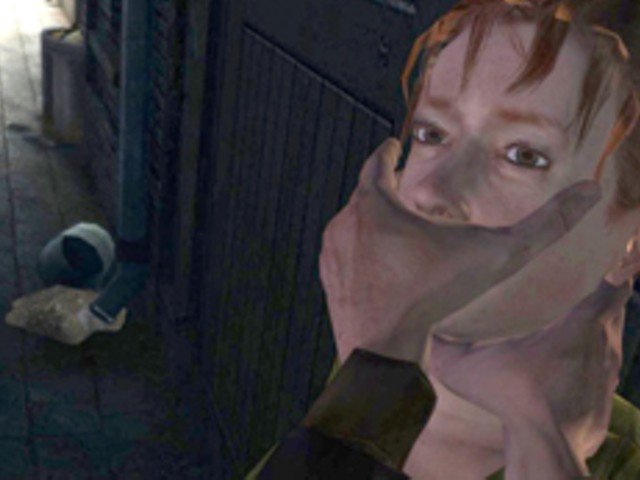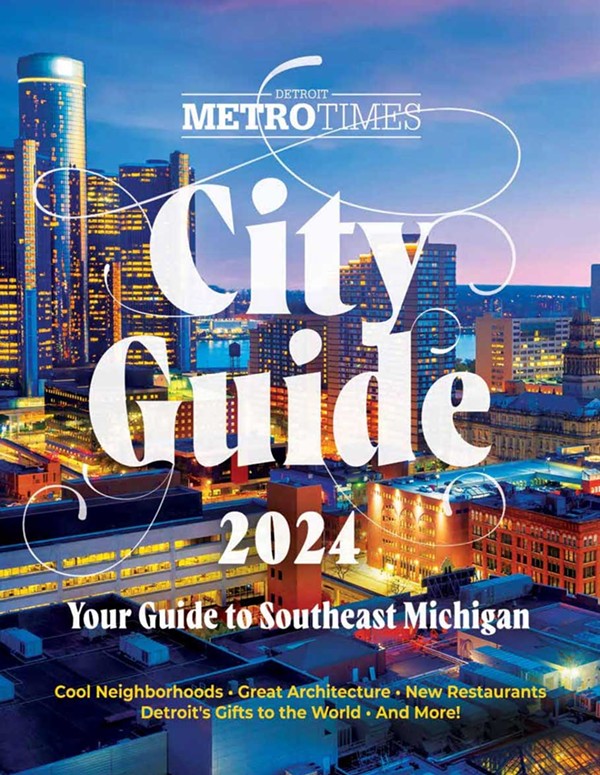Born in 1930, Epstein grew up on Normandy Street in the Martin Park neighborhood of Detroit, and attended Wayne State University in the late 1940s. She became involved in poetry and writing circles, and participated in poetry festivals put on by the Michigan Poetry Resource Center on the west side of the state in the late ’60s and early ’70s. There, she rubbed shoulders with the likes of Allen Ginsberg and Robert Bly. When Michigan writers began to move out of the state, Epstein took it upon herself in 1977 to move the PRC to Detroit and maintain a schedule of readings and workshops in a small loft in Greektown, and later in Royal Oak.
Epstein was instrumental in getting funding for the PRC and its annual writers’ festivals. Her friend and fellow poet M.L. Liebler took the reins of the Center at Epstein’s urging in the mid-1980s, and carried the organization through several incarnations, first as the Writers Voice and now as Springfed Literary Arts of Metro Detroit. He credits the strength of the contemporary writers community in Detroit to Epstein’s work in the ’70s.
“When you trace things back, Henrietta is sort of the foundation of the scene that everybody enjoys today,” he says. “Lots of folks today, they came after Henrietta, and they may not know that it really goes back to her having the vision to bring what was going on on the west side [of Michigan] here to Detroit.”
Leibler describes Epstein as an avid arts activist, as well as politically active and socially conscious. She supported the Civil Rights Movement and urged students at Wayne State to participate in the Freedom Rides in the early ’60s. She was also part of the anti-war movement, and throughout her life was involved in social and political causes.
Epstein worked as a professor of creative writing and poetry at the College for Creative Studies, and was, for a time, a writer-in-residence at the Interlochen Arts Academy. She was not a prolific writer, but, Leibler says, “labored long and hard over each little poem she wrote.” She published a small chapbook of 18 poems called Necessary Pearl with Red Hanrahan Press in 1974. Her work has been collected in volumes of Michigan poetry, including Contemporary Michigan Poetry: Poems From the Third Coast (1988) and Abandon Automobile: Detroit City Poetry 2001, both from Wayne State University Press. She also contributed to various literary reviews, including The Wayne Review, The Windsor Review and Passages North.
Many of Epstein’s poems center on Detroit and the city as it was when she grew up in it. Rather than obscure or veil, Epstein’s poetry evokes. She wrote in short phrases that provide rhythm and flow easily to the next line. Her poems are narrative and almost prose-like; scenes emerge from the stanzas to offer the reader a look through Epstein’s eyes. In “Wedding Photograph: Detroit, 1935” she examined her own parents, considering their thoughts “as their picture is snapped / and particles of unearthly light surround them”. Epstein managed to draw from an old sepia image the simultaneous elegance and anxiety of a couple beginning a new marriage, capturing an eerie solemnity. The photo and poem are displayed side by side at the Michigan Historical Museum in Lansing.
In “Confession of the Rouge Park Killer” she examined the complexities of a relationship weighed upon by failure and war, which sent the speaker’s father “here to Detroit / to choke in the factories”. In “Memories of Normandy Street in Detroit” (re-printed below), Epstein used small details to conjure “the boys I loved,” who seem not to love themselves. Many of her poems feel heavy, even sad, but Leibler also noted a “satirical, cynical sense of humor in some of her work.” Given that Detroit was her home and canvas, this twin sensibility is not surprising.
Epstein is survived by her husband Emanuel, their three sons J. Paul Epstein, Jonathan Epstein and David Epstein, and five grandchildren.
A memorial service for family and friends was held Tuesday at Hebrew Memorial Chapel in Oak Park. Liebler says a literary memorial to honor Epstein’s life and work will be held at a future date.
Memories of Normandy Street Detroit
by Henrietta Epstein
The boys I loved never played baseball.
They collected baseball cards and knew every
major league player since 1914 and their birthdates,
their batting averages, their RBIs and
their times at bat and their ERAs.
They weren’t right anyway; they stayed indoors
for hours while the rest of us were out
bombing Mr. Froelich’s garage with crab-
apples because he was old and German.
They were too tall to be happy, and stood
in the last row in the Glee Club choir and
always knew all the words. When they walked
you to the bus, they could never hold your hand
or put their arms around your waist
because they were holding their books and
their violins case in the other hand.
They studied Latin and never fought in the right wars.
They went to Italy on fellowships
and collected fine prints from Japan.
They never married.
On the day before Christmas, one of the boys I loved
died in a university hospital of cancer of the colon
at the age of nineteen. Thirty years later,
on the day before the Jewish New Year, his best friend
died on Belle Isle of self-inflicted wounds
Simone Landon is a Metro Times editorial intern.





